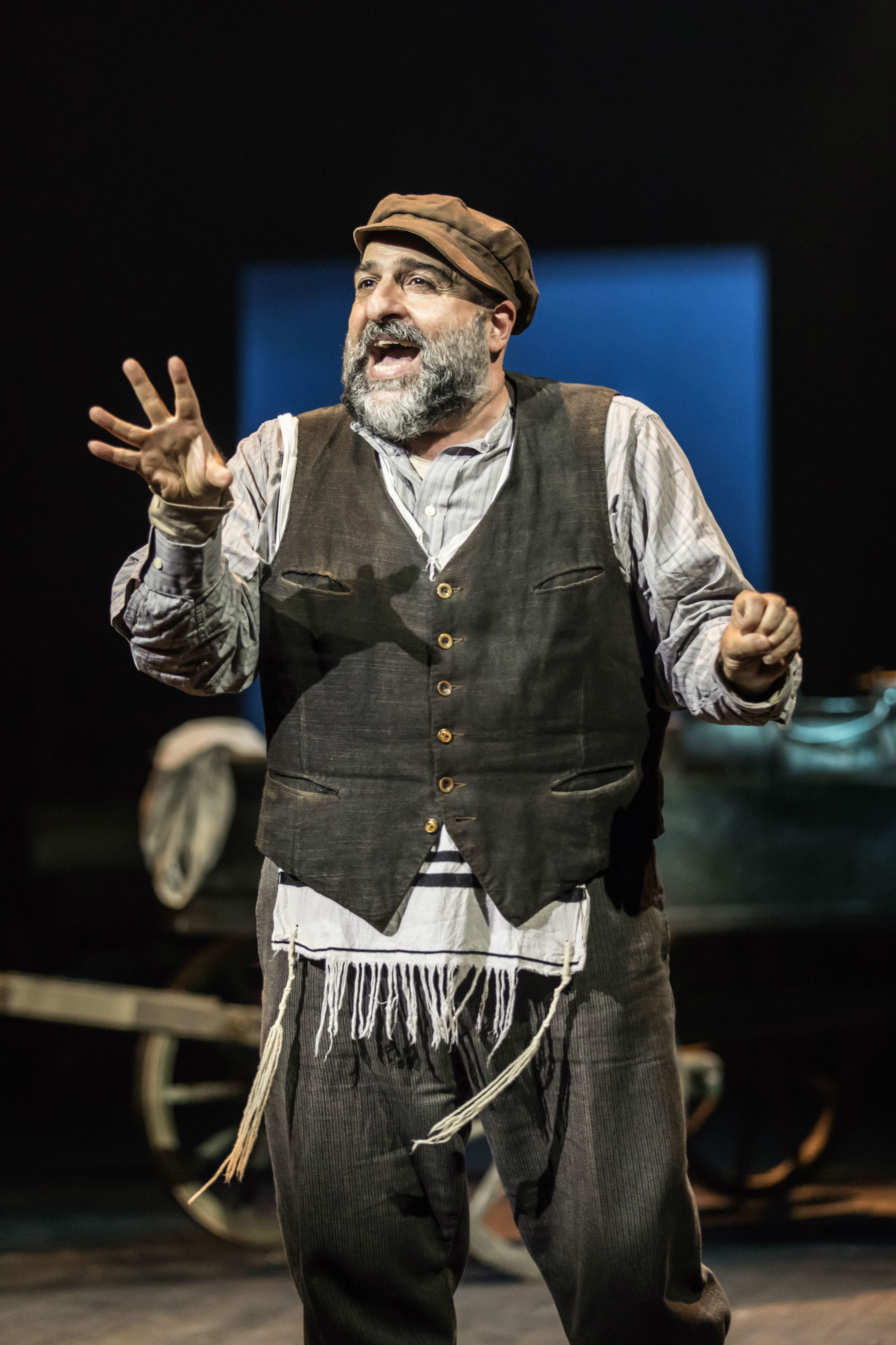It’s a pity therefore that this production of a fine musical doesn’t always feel as sparky as it should. One senses that – the dancers in the wedding scene for instance – are still mentally reading their choreography notes. And far too many performers – Tracy-Ann Oberman as Golde for instance – have been cast for their acting rather than their singing ability.
“On the other hand” as Tevye (Omid Djalili) would say there is also plenty to enjoy. Djalili amply pulls off the hardest job – inevitable comparisons with Topol – and the biggest role. Convincingly sincere in his quirky, funny chats with God. He sings “If I were a rich man” as if he’d just thought of it and with delicious timing. He has a delightful knack of communicating with the audience with just his eyes which means that you never stop watching him. Anger, joy, deviousness, camaraderie, authority, love for his daughters – he manages it all with naturalistic charm. In effect the show is Djalili’s and he effortlessly outshines everyone else.
Tom Brady’s magnificent thirteen piece orchestra, concealed on a shelf above the stage, is another major strength, We get a good look at them after the interval. Brady ensures that we hear every note of orchestral detail and manages the excitable Klesmer rhythms and the accelerating tempi pretty well. He even ensures that a difficult number like ‘Do You Love Me?’ stays more or less together. Darius Luke Thompson, who creeps out of the orchestra at various points in the action, is an insouciant fiddler, perched on the roof at the beginning playing with wit, warmth and lyricism.
Amongst the support roles, Gareth Snook is strong as the gruff, disappointed Lazar Wolf, the old butcher who doesn’t get to marry Hodel (Emma Kingston – good). Louis Maskell sings pleasingly as Perchik and Rose Shalloo gives us a nicely judged, bespectacled, feisty but sweetly feminine Chava.
The blurred emergence and disappearance of the ensemble from the dark upstage space is effective. So is the use of suitcases – redolent with the ever topical, symbolism of a people being driven from their home villages and countries – as a versatile set (designer: Lex Brotherston). And the projection at the end of thousands of real life, early twentieth century Jewish people driven into exile really hits you between the eyes.
Review by Susan Elkin



